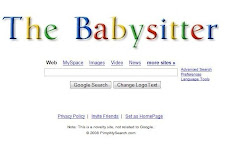The magic word that everyone understands and loves – Money. We all know money can’t buy you everything, but yet we value it’s importance for what it can buy. We all need money to survive, and to live a comfortable life. However, many people are so enthralled with the concept of having money that they want more and more money to save up, just to say they have x amount of money. Then there are some that will do anything to be rich, they will marry a rich guy to live a luxurious lifestyle of shopping therapy.
Any form of collection are things that make children happy but seem to be insensible expenses. In my days it was Hi beary stationary. It has then gone to crazy bones, and now I hear it’s napkins. Some will view these collections as a waste of money, after all if you look at the item for it’s physical worth, it doesn’t seem to be as high as the price it costs. But yet because it’s a collection it costs more. Children gain so much pleasure from collecting items. They get a sense of accomplishment from the more they collect. Parents can use this to their advantage by letting the child get their collectors items as a reward. The children obviously value it, so they will agree to the reward system. It also teaches the child how to be responsible, to not loose what they have collected, and to trade it wisely. Come to think of it, collections teach them bartering skills, and financial skills.
My view on how to go shopping, is to buy what you need and that’s it. I feel it’s a waste of time and effort to go from store to store to save the .10 or .15 you will save. If you need something you buy it at the store your at. Also, I don’t see sales as a way of saving money, but rather wasting money. Unless you need the item then it’s a great thing that it’s on sale. But if you don’t need the item and you happen to see the sale sign and decide to stock up on it, you have to evaluate your action. Look at the item again, see if it will actually be used or not, and then decide if it’s worth it. It could be that it will just sit in your fridge for days and no one will touch it. The kids may be used to a different product, and they will be left hungry if you buy the sale item they don’t like, and don’t buy the item you know they have liked in the past.
I think children should be aware that things they buy cost money, but I don’t think they should be taught too much on financial skills. There is no reason why a child should be left with guilt to buy something they need, because they are afraid it cost too much money. At the same time, you don’t want to cause your children to become money hungry. If your always talking about saving money, and how you shouldn’t spend money. Then the children will expect money by their birthday presents and will want more money than what they are given, and won’t ever be happy. Both cases will cause unhappy children. So you have to know the right balance to make children aware that things cost money, but not to lead them on to either extreme of being money hungry or self conscience about asking for things they need.











I've had a bank account since I was 8 years old. My parents always taught me that any money I receive I should put half in the bank and the other half I can use as I wish. Now I find myself putting it all in the bank so that we can pay for rent, food, utilities, etc. The older I get the less money I put toward "using as I wish".
ReplyDeleteSo young and so very wise! I wish I was as wise as you at your age!
ReplyDeleteMy friend teaches her young kids that at Chanukah, there are children who go without, so she tells them to pick one present (that is wrapped) and they take it to the Children's hospital. They don't get to unwrap it first. They learn so much from this.
Thank you for posting on my blog. I love your positivity!
Babysitter
ReplyDeleteI find a few things wrong with what you said. first, a child will not feel guilty for getting a present even if they know it costs money, ever. Two, The child will not ask for more money by a birthday if you talk about saving money and how not to spend it.
My bartering skills were mastered through trading torah cards.
Money has the value of the things it can buy. If you don't tell kids what the value of money is then they will end up wanting everything, no matter the price. Money puts things in perspective, it tells the kid the difference between a small lolly and a very big one. On one hand the parents can give subjective values to things that they feel are more rewarding, but on the other hand, money gives the value that "the market" thinks something is worth. To not give the kid financial skills is to say that what ever the kid wants is a need so long as he wants it badly enough. And this is exactly why there is a financial crisis in the Jewish community, people learn as kids that what they want is really a need and they end up getting into debt over it.
ReplyDeletechildish- I knew you'd have a comment on this already. from the economic perspective. lol.
ReplyDeletemike- you're right, kids will not feel guilty abotu receiving a present, no matter what. Though they WILL feel guilty about asking for one if they understand the concept of money.
babysitter- I used to be one of those children that, at around the age of 10, would tell my parents which stocks they should buy. lol. Obviously I didnt understand much about it, so they didn't listen to me, but I did constantly ask questions and they constantly discussed financial issues infront of my sis and me, so that we can pick up the lingo.
I remember going shopping with my parents and they would have me calculate stuff to see which product was more worth to buy.
It was fun. Not only did we save money, but it was a great way for mom to help me with my math skills.
Now that sister and I are older, we're not doing this anymore. But still... like they say, chesed begins at home...so does education.
Money and math skills are the ultimate form of education you should recieve from parents! :)
Very interesting lesson, I see its important to get kids to understand the value of a $
ReplyDeleteGah!
ReplyDeleteIt's called collectibles, not collections!!!
Grammar Nazi gives you a big fat F
To Everyone: could be I didn't word it right. I think it's great to teach children about money, just they shouldn't have to feel the burden of what it involves.
ReplyDeleteJessica: That's an interesting idea to be given money and half you get to use as you wish, and half to put in the account. I like that idea. Then it teaches the kid to save, and at the same time they still get to feel as though they got some money. But yea, as you get older you have more expenses and can't just use it on a whim.
Shorty: wow, I'm flattered! Thanx!
Wow, I can imagine the lessons the children learn from that. But what's important in that case, is that it has to be started from when the children are young. Otherwise when they get older if they all of a sudden have to give away presents they will resent it. But if it was started from a young age then that can be a great thing, to teach them to give and care for others, that there are other people besides themselves.
Your welcome, and Thanx once again!
MikeInMidwood: Your right, a present is different, because they don't need to earn it. Although I do know some children that feel bad taking presents, but those are rare cases.
Maybe I didn't write out the real cause, but I do know children like that, that expect chanukah money, and all kinds, they expect money if they did something that everyone has to do.
ahh I forgot to mention the Torah cards!
Childish: Your right, you do have to show them how some stuff cost more than others based on it's value.
FrumSkeptic: So long as it's made it to a fun thing, then that can be great, as it's both educational and bonds the family.
I remember, I used to write out checks for my father, for tzedaka organizations, every Sunday, we would sit at the dining room table, and he would show me the envelope of the name and how much, and I would write the check and record it, then I would write out the envelope, and he would sign the check. I would treasure those moments, cause it served as a great bonding time, and I also felt important that I was writing out his checks, and it was fun, and it taught me to give, and taught me how writing checks works, and I realized how much tzedaka he would give.
Then when I came to 12th grade, and we did accounting, and at one class my teacher brought in checks and asked us to write them out and record them, I was surprised how many classmates had never written a check before and didn't know how to do it. So yea, stuff like that is just skills, and it's fun.
But I just don't feel it's right for children to have to be constantly conscious of how much money their spending. To not agree to go on a trip because it cost money, children to have fun at their young age, and shouldn't be so serious about this stuff. If it can be taught in a fun way, where they still have their youth, then that's great. Also, parents shouldn't scream at each other in front of the children, about the spouse always getting parking tickets or spending too much on the grocery bills. That's just between the 2 of them, and the children don't need to see their parent in a bad way, and they don't need the trauma of it.
KT: yea, although if a child is more happy with a .99 toy, then I don't see a reason why they should have to buy a $100 toy because it's value is more.
ReplyDeleteMoshe: lol, well I wouldn't call that grammar, more like word use. But kids call it collections and not collectibles. Collectibles makes it sound like their collecting antiques or something.
I agree about the sales items point (along with the other points made), you end up spending more on stuff that's on sale than reglar-priced stuff. The exception (in regards to non-food items) is the 'thrift shop' at times you can get stuff at places like those at much more reasonable prices than regular stores.
ReplyDeleteShlomo: Your right, there are thrift shops and other places where you can get great deals on stuff you normally don't buy. Like by target, they have the 1 dollar section, which is fun to look at and choose stuff, even though you don't necessarily need them.
ReplyDelete